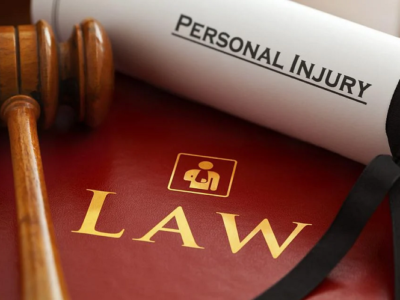Unfortunately, people commit criminal acts. That said, not all crimes stand on equal footing.
The American justice system separates said offenses into differentiations. Arguably, the two most common criminal categories are misdemeanors and felonies. The differences between the two will affect how your criminal attorney proceeds.
Table of Contents
Misdemeanors
Misdemeanors are the less serious criminal offense. These offenses are considered criminal but less serious in nature.
Misdemeanors are divided into several subcategories:
Class A
This is the most serious variety. Typically, individuals convicted of these infractions receive incarceration sentences of less than a year but more than six months.
Class B
Those handed down punishments for these offenses usually receive jail terms lasting anywhere from 30 days to six months.
Class C
This least severe misdemeanor category carries incarceration times ranging from five to 30 days.
Those convicted of misdemeanors might also be given fines, community service, or other miscellaneous penalties.
Felonies
Felonies are the most serious type of criminal offense.
Like misdemeanors, felonious acts are separated into several categories as established in accordance with United States federal sentencing guidelines. Said differentiations include:
Class A
Typically, those convicted of these crimes are handed down life in prison or the death penalty.
Class B
Individuals found guilty of perpetrating these offenses are typically incarcerated for 25 years or longer.
Class C
Adjudicating entities usually sentence those judged to have committed these transgressions anywhere from 10 to 25 years in prison.
Class D
This second least serious felony carries jail terms of more than five years but less than 10.
Class E
Those ruled to have committed such delinquencies usually serve more than one year in jail but less than five.
Felonies might also be grouped into degrees. First degree is the most serious and carries the stiffest penalties. Third degree offenses are the least severe.
Differences Between Categories
In addition to the perceived severity of the malfeasance act and the incarceration periods, misdemeanors and felonies possess several other notable differences including:
The Incarceration Location
The location of misdemeanor and felony sentences are served vary widely.
In most instances, those convicted of misdemeanors complete assigned terms in municipal or county jails. However, felons usually serve their time in state or federal prisons or penitentiaries.
Trial Length
Felony trials often last for longer duration than misdemeanor proceedings.
Felonies typically involve violent crimes like rape, murder, and child molestation. There is often a more significant degree of evidence, witnesses, and complex issues to sort through. Therefore, such undertakings usually drag on for extended durations.
The Process By Which Suspects Are Charged
One potentially discernible difference between misdemeanors and felonies is the method authorities employ to charge suspects.
If authorities possess enough credible and suitable evidence, they can usually levy misdemeanor charges against a potential suspect. However, prosecutors often must hold grand jury proceedings and obtain indictments from said ruling entities against certain felony suspects before bringing charges or taking such matters to trial.
Trial Procedures
Felonies and misdemeanors often differ in terms of the trial procedures afforded those accused.
Individuals charged with felonies are entitled to jury trials. Misdemeanor offenses are not always adjudicated by juries.
Miscellaneous Variations
Individuals convicted of felonies might encounter a variety of notable challenges those punished for committing misdemeanors might not including:
Exclusion From Jury Duty
Those convicted of felonious actions might lose their right to serve on juries.
Firearm Possession
In certain instances, convicted felons lose their constitutional right to either purchase or bear arms.
Prohibition From Entering Certain Professions
In certain states, a felony conviction inhibits impacted subjects from pursuing careers in specific professions. This is especially true in the legal, educational, and military realms.
Difficulty Securing Housing
Landlords, real estate professionals, and housing authorities may be reluctant to rent or sell property to those with felonies on their records.
Permanent Records
Felonies often prove far more challenging to remove or expunge from one’s permanent record than do misdemeanor offenses.


















Comments